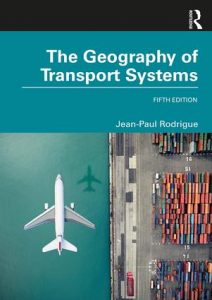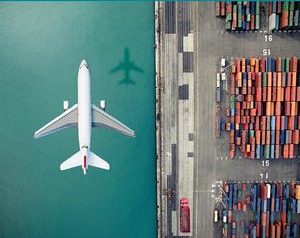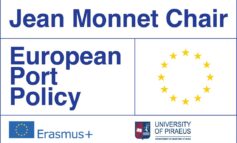 The mobility of passengers and freight is fundamental to economic and social activities such as commuting, manufacturing, distributing goods, or supplying energy. Each movement has a purpose, an origin, a potential set of intermediate locations, and a destination. Mobility is supported and driven by transport systems which are composed of infrastructures, modes and terminals. They enable individuals, institutions, corporations, regions and nations to interact and assume economic, social, cultural or political activities. Understanding how mobility is linked with the geography of transportation is main the purpose of this textbook.
The mobility of passengers and freight is fundamental to economic and social activities such as commuting, manufacturing, distributing goods, or supplying energy. Each movement has a purpose, an origin, a potential set of intermediate locations, and a destination. Mobility is supported and driven by transport systems which are composed of infrastructures, modes and terminals. They enable individuals, institutions, corporations, regions and nations to interact and assume economic, social, cultural or political activities. Understanding how mobility is linked with the geography of transportation is main the purpose of this textbook.
Mainly aimed at an undergraduate audience, the new book of PortEconomics member Jean-Paul Rodrigue, The Geography of Transport Systems, offers a comprehensive and accessible introduction to the field with a broad overview of its concepts, methods and areas of application. This material is provided to practitioners, policymakers, educators, researchers, students, and individual learners and includes a wide variety of media elements such as maps, figures and PowerPoint presentations.
The textbook is divided in twelve chapters. The first nine chapters cover a specific conceptual dimension of transport geography, such networks, modes, terminals and urban transportation. In addition to these conventional topics, emerging issues such as globalization, supply chain management, information technologies, energy and the environment are also thoroughly discussed.
Since transport is a field of application, the use of methodologies is particularly relevant to assist transport operators allocate their resources (investments, infrastructure, vehicles) or to influence public policy. The tenth chapter focuses on qualitative and quantitative methodologies linked with transport geography such as accessibility, spatial interactions and graph theory. The convergence between methodologies and information technologies has led to many new analytical opportunities, notably with geographic information systems for transportation (GIS-T).
Transportation is a very active field of investigation and application to real world issues, which are covered in the eleventh chapter. These include, among others, city logistics, cruise shipping, high speed rail, or the financing of transport infrastructure.
Find more information on the new Jean-Paul’s book “The Geography of Transport Systems”, published by Elsevier here.










